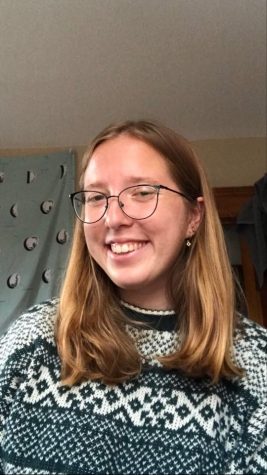For the past several semesters, the Student Services and Relations Committee (SSRC) of MCSG has advanced a program that uses money from the student activities fund to finance the provision of free menstrual products across campus.
Former SSRC Chair Ariana Hones ’18 first proposed the initiative to the Legislative Body in the fall of 2017. Since then, the SSRC has worked with Facilities Services to make her vision a reality.
While the project is currently funded by the student activities budget, MCSG was unable to estimate the cost of the program.
“Some of the dispensers need to be replaced in order to provide product at no cost,” Assistant Vice President of Facilities Nathan Lief wrote in an email to The Mac Weekly. “Depending on the size and type of the dispenser, they can cost anywhere from $200 to several hundred dollars.
“Initial estimates put the cost of converting the campus between $15,000 and $20,000, plus the labor to remove and install the new units, patch walls, etc,” he continued.
Current Vice President and Chair of SSRC Blair Cha ’20 inherited the project from Hones, who graduated last Spring. According to her, facilities staff initially resisted dedicating substantial resources to products only some students require. Eventually, however, their stance changed.
“I think they came to understand what students need and that it’s not acceptable to just bystand the amount of students who use unhygienic methods because they can’t afford it,” Cha said.
For now, Facilities has implemented a pilot version of the program in female and all-gender restrooms in the Leonard Center, the Campus Center and the DeWitt Wallace Library. Staff are monitoring the overall use of products in those locations.
“We decided to make the products free in facilities that all students would have access to and that most students visit regularly,” Lief wrote.
In the future, Cha and the SSRC hope to expand the program throughout campus. But in order to receive additional funding, they’ll have to prove that students are making use of the products being offered.
To do this, the SSRC plans to heavily advertise the program in the coming weeks. They will also release a survey in March pursuing specific feedback from students.
Not only will the survey evaluate the popularity of the project, but also ask students detailed questions about the program, like what products they prefer. Right now, the tampons and pads available are relatively low-end products.
“They’re cardboard. It only hurts sometimes,” Liv Gigliotti ’21 said.
As far as Cha is aware, however, the pilot program has been almost universally well-received among students and numerous individuals have reached out directly to her with positive feedback.
“All positive, even from other universities or colleges,” Cha said. “Students from Macalester connect me with people across the states and they want to do it too.”
Recently, Cha spoke with members of the student government at the University of Michigan and discussed methods to lobby for support for a menstrual product pilot program.
Initiatives to provide free menstrual products to students have grown in popularity in recent years. In 2017 and 2018, programs similar to Macalester’s started at the University of Wisconsin, the University of California, Los Angeles and the University of Vermont, as well as at private schools across the country.
This August, Scotland made headlines becoming the first country in the world to mandate that all students have access to menstrual products. A recent study by Plan International UK showed that 1 out of 10 menstruating individuals in the United Kingdom is unable to purchase necessary sanitary products and 1 out of 12 have used improvised protection as a result.
Marlee Van Ostrand is a first-year at the University of Aberdeen in Aberdeen, Scotland. Originally from Minnesota, she was “thrilled” to find out that Scotland took the initiative to address the issue of menstrual health as it relates to social justice.
“I definitely feel that free menstrual products are necessary,” Van Ostrand wrote in an email to The Mac Weekly. “There is a similar movement to provide free menstrual products to people with low income, which I think is great and perhaps more necessary than the participation of universities.”
In the future, she wants colleges and universities to take those issues into consideration.
“I believe that US schools should absolutely consider adopting similar policies, especially given the tuition rates at most American universities,” Van Ostrand continued. “It’s the least they could do for their students. Additionally, a program to provide free products to Americans with low income would benefit millions.”
Cha agreed.
“It’s a basic necessity and no one should pay for it if they’re a Macalester student,” SSRC Chair Blair Cha said.






Sean Henderson • Sep 12, 2019 at 2:35 am
I’m extremely inspired with your writing abilities and also with the layout to your weblog. Is this a paid subject or did you modify it your self? Either way keep up the nice high quality writing, it is uncommon to see a great weblog like this one nowadays..
Carol Vaughan • Sep 10, 2019 at 7:57 pm
I think this web site contains some very excellent information for everyone : D.
Michael Short • Sep 8, 2019 at 5:54 am
I was just looking for this info for a while. After six hours of continuous Googleing, at last I got it in your site. I wonder what’s the lack of Google strategy that don’t rank this kind of informative websites in top of the list. Generally the top sites are full of garbage.